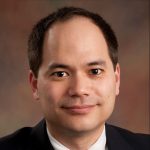William H. J. Hubbard’s innovative analysis of four decades of civil procedure reform asks what kinds of procedural changes really make a difference.
Delays, high costs, lack of access, and many other concerns motivate frequent calls for changes to civil courts and the rules that govern how they conduct their business. Changes to the rules occur almost as often as these calls for change: the Federal Rules of Civil Procedure (FRCP), along with the Federal Rules of Evidence and Appellate Procedure, are amended almost every year. Controversial and legally significant changes to the FRCP occur with some regularity, and case law plays an important role in creating even more changes to the rules. Many states adopt civil procedure rules based on the FRCP, meaning that these changes have wide impacts beyond federal civil courts.
Changes to the FCRP aren’t just theoretically important—they can shape real-world outcomes and may even address some of the persistent problems in civil courts. Academics and others interested in the law may hope or assume that these changes have the effects they are intended to have, but in a complex legal system, it isn’t immediately apparent which changes are creating positive change (or any change at all) for most people interacting with civil courts in the real world. In the midst of so much change and discourse, how can we know which rule changes really matter?
This is the question William H. J. Hubbard seeks to answer in a research project focused on the rules of civil procedure. Hubbard is a Research Professor at the American Bar Foundation and the Deputy Dean and Harry N. Wyatt Professor of Law at the University of Chicago Law School. He is a nationally recognized expert in civil procedure and in law and economics.
Hubbard’s research project lays out a rigorous, empirically grounded investigation into when, why, and how changes to the formal rules of civil procedure translate into meaningful changes in litigation outcomes.
The project will examine the effect of major court precedents, amendments to the Federal Rules of Civil Procedure, and procedural legislation passed by Congress on court cases during a period covering most of the last forty years. By applying advanced methods of causal inference to this dataset, Hubbard will empirically evaluate the impacts of civil rules changes.
In addition to uncovering the effects of changes to the rules, the project will also develop a more general framework for designing and deploying procedural reforms that make an impact in practice. The time, resources, and political capital needed to make changes to the civil courts are limited, making an empirical framework for understanding these changes particularly useful to those aiming to make the kinds of reforms that meaningfully change the way civil courts work. By providing such a framework, Hubbard’s project not only contributes to a greater understanding of the civil courts but also helps those who change the rules be more certain that their changes can make a positive difference.

